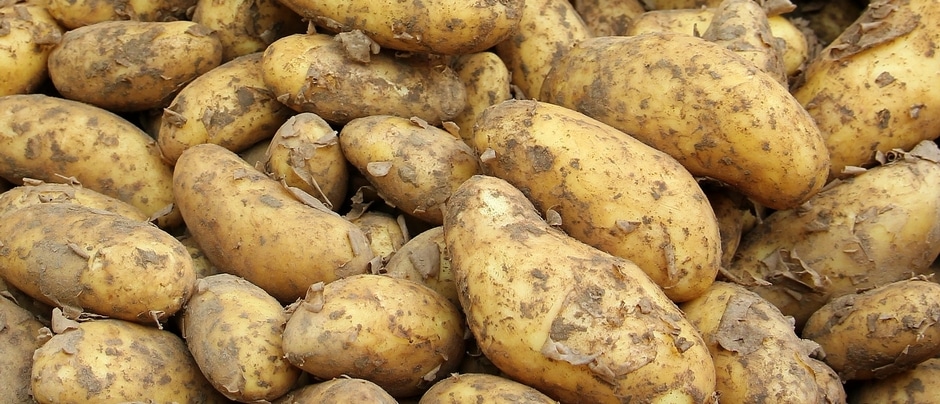A genetically improved potato designed to have resistance to a devastating global plant disease has successfully come through the first year of field trials.
The field trial conducted by The Sainsbury Laboratory (TSL) in Norwich involves incorporating late blight resistant genes from a wild potato relative into a cultivated Maris Piper potato.

“The first year of the Maris Piper field trial has worked brilliantly,” said Professor Jonathan Jones of The Sainsbury Laboratory. “We’ve observed resistance to late blight in all the lines.”
Late blight in potatoes is a global challenge, a devastating crop disease that can wipe out whole fields of potato plants. At present, crops all over the world must have multiple treatments with fungicide to combat the pathogen and ensure a good harvest.
The potato modification involved the addition of three genes that enable late blight detection. After the first year of the field trial, scientists observed a marked improvement in late blight resistance. The plants have been scored for resistance, and the results of the trial will be published following further field trials in future years.
Because the resistant lines carry three different added detection genes, it will be more difficult for the pathogen to evade detection and infect the crop. In effect, the potatoes will have more lines of defence against the disease.
Maris Piper is a highly popular maincrop variety, selected for these experiments with the objective of retaining its desirable characteristics while adding late blight resistance.

Alongside resistance to blight, in field trials next year the modified Maris Piper will also carry traits that improve tuber quality. Two genes will be switched off in the plant, a process known as silencing. This means the new crop will be less prone to bruise damage, making it easier to ensure the potatoes meet customer quality specifications. The second trait, caused by silencing an invertase gene, leads to lower levels of reducing sugars on storage at low temperatures, which will reduce blackening and formation of acrylamide when potatoes are cooked at high temperatures.
The work is being carried out on a BBSRC-funded Horticulture and Potato Initiative (HAPI) grant, in partnership with Simplot Plant Sciences in the U.S. and with BioPotatoes Ltd in the UK.











